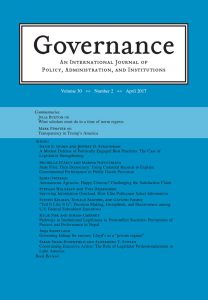The Power of Comedy
Mark Twain once said “that the human race has only one really effective weapon and that is laughter.” Even if this is an exaggeration, it might explain our love for humor, specifically the art of comedy. Humor allows people to approach sensitive issues. No one is better at this than the Stand-up Comic. The Comic’s job is to create, sustain, and guide the audience throughout their performance. In doing so, the comic touches on material that is taboo to the host society.
Jokes are obviously meant to be laughed at and understood by the way in which the comedian communicates their craft onstage: in front of their audience under terms and conditions that are both relatable and comical. The more a comedian works on their craft, knowing their audience, honing in on the jocular, the more they earn trust and respect from the people that pay to laugh. This trust and respect is crucial to the comic to not only obtain laughter, but also to send a message to the audience, that even in times of difference, we are more similar than we think
Polished comedians allow for their audience to learn about the society by forcing them to think about the infrastructure that orders our daily lives. Jokes become the chisel chipping away at the preconceived notions which perpetuate the inequalities of today’s world.
Because of the nature of a joke, topics that are often taboo can carve out a space that can work at creating a new understanding of a sensitive topic in its parody. It also allows the comic/audience a dynamic space to openly discuss and contemplate these sensitive issues. Humor provides a key site for reversal and resistance to the inequalities that society perpetuates, encouraging its incongruity through disturbance, thus offering a stylistic redefinition of reality. One such issue that has been going through this redefinition is the notion of sexuality.
Two weeks ago, Buffalo, NY celebrated their 21st annual Pride Parade. It also celebrated a year in which equal marriage rights gained traction in the socio-political arena. With each successful movement there comes hardships and down times, but what we should really focus on is the work being done every day to create the compassion needed in order to rid our lives of the tyranny that inequality creates.
At the heart of this work lies Kristen Becker (Buffalo Art Voice’s 2012 Best Comedian).
Laughter as a weapon is something Becker takes close to heart. Comedians like her succeed because they help individuals to rearrange the way we all understand social relationships. Topics such as sexuality forces the listener to reevaulate their understanding of identity from both their own understand as well as the one being conveyed by the comedian. Under her guidance, the Queen City is armed with an arsenal of humor (both by performance as well as mentoring) that is helping to redefine the reality of this Blue Collar city. Her comedy began over ten years ago and she has travelled all across the United States promoting her no-holds-bars progressive comedy on a plethora of sensitive issues. Her success brought her home to Buffalo six years ago, where she started reinventing a comedy scene downtown that had previously been dead for over a decade.
Starting with Doin’ Time Comedy at a music venue aptly named Nietzsche’s, Becker has given a voice to those who want to speak their mind about issues that matter in life through the art of the jocular. Doin’ Time is in its sixth year and has had over 90 different comics take its stage to not only develop, but educate those who come out to watch. Shortly after starting Doin’ Time Comedy, Becker hit the road on one of the first ever tours featuring lesbian comics, going to places in which progressive comedy can be frowned upon. The success of the Dykes of Hazard Tour gave birth to the Comedy Variety Hour at the Babeville Arts Center, located in the heart of Buffalo. Notably, the show consists of more than just comedy, focusing on music as well as a burlesque show.
These shows not only combat long standing prejudices; they are also a part of Buffalo’s rebuilding process. The growing comedy scene, according to Becker, can help stimulate the economy by making it a place where people come to see comedy. With a downtown comedy club, people can focus on coming to shows that represent the local culture but also see national acts, which up until now, have shunned the Nickel City for cities like Cleveland and Rochester. As a Buffalo native, Becker wants the city to regain the popularity that made it one of the most progressive cities at the turn of the twentieth century.
Her motivation to make Buffalo succeed is best understood by her focus away from individual differences that constrain our development (both individually as well as a City) and focus on the importance of similarity.
As a sociologist, I cannot agree with her more. A good joke does not divide us in its incongruity; it makes us laugh at how petty we can be concerning difference, and by seeing how we are in fact the same, can have monumental effects on all of us regardless of our sexuality, race, ethnicity, or gender.
Although the conversations I have had with Kristen Becker (and this article) might seem like nothing more than reinventing the wheel, it is important to remember that the more we talk about individuals like Becker, the more we can focus on those everyday occurrences of similarity that will help us push for the equality we all deserve.
To learn more about the comedy of Kristen Becker go to her website at:
http://kristenbecker.weebly.com/
For additional reading:
Fulton, DoVeanna. 2004. “Comic Views and Metaphysical Dilemmas: Shattering Cultural Images through Self-Definition and Representation by Black Comediennes.” Journal of American Folklore. 117/463: 81-96.
Mintz, Lawrence. 1985. “Standup Comedy as Social and Cultural Medation.” American Quarterly. 37/1: 71-80.






I do see how someone can employ comedy to forward social justice, but a good joke can certainly be used to divide us. Or for that matter to undermine social justice, to diminish the importance of racial or gender inequality (see Carlos Mencia), or to promote racism (again see Carlos Mencia), or to ridicule all social activism (see South Park).
Both South Park and Mencia are capable of telling “good” jokes – I think the creators of South Park are quite funny and Mencia can tell a joke and has comedic timing but they don’t often make us laugh together – precisely because, as you point out, jokes are almost always a little more than just jokes.
Readers may also really enjoy the TSP Roundtable “Laughter and the Political Landscape” at http://thesocietypages.org/roundtables/humor/, the Contexts piece 30 Years of Black Presidents (by Walt Jacobs) at http://contexts.org/articles/winter-2010/30-years-of-black-presidents/, and the array of comedic voices (many very political in various directions) at Stand UP! Records (standuprecords.com). Full disclosure: I absolutely work for or have worked for all of these organizations in my time as an editor and copy writer!